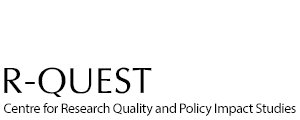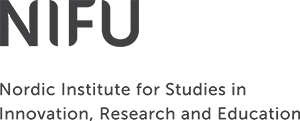Seminar November 1.: On impact cases in research evaluations
Date and time: November 1., 14.00 – 17.00
Place: NIFU, Tøyen, 11th floor.
We invite you to a seminar to discuss impact cases in research evaluations. The seminar will be held in English.
Impact is a central concept in today’s science policy. Researchers and research organisations have to demonstrate impact in their projects and applications, and it has become a central part of all types of evaluations of research. Short “impact case studies” is popular in many countries – but does this really measure impact? What are the experiences with impact case studies? These are central questions at this open seminar organised jointly by the Oslo Institute for Research on the Impact of Science (OSIRIS) and the Centre for Research Quality and Policy Impact Studies (R-Quest).
Tentative agenda
14.00: Welcome and background – Magnus Gulbrandsen, OSIRIS/UiO and Liv Langfeldt, R-Quest/NIFU
14.10: The relationship between impact and excellence in the UK Research Excellence Framework. Richard Woolley, OSIRIS/INGENIO, Polytechnic University of Valencia
14.30: Impact cases in Norwegian research evaluations. Espen Solberg, R-Quest/NIFU
14.45: What has the Research Council of Norway learned from impact cases? Heidi Dybesland, RCN
15.00: What are the experiences from the researcher side in the evaluation of the humanities? Hallgeir Elstad, Faculty of Theology, UiO
15.15: What are the experiences from the researcher side in evaluation of research institutes? Gunnar Sivertsen, R-Quest/NIFU
15.30: Coffee break
16.00: General discussion moderated by Bergljot Gundersen, University of Oslo
Background: The UK Research Excellence Framework (REF) evaluation introduced impact cases as a methodology in 2014 in the form of short (two pages) descriptions that document how a concrete outcome is related to a specific research product such as a publication. This method has later spread to other countries, including Norway where it has so far been used in at least four large-scale evaluations of research both among research institutes and larger fields also encompassing universities and colleges.
The aim of this meeting is to discuss this methodology and questions such as: What can we learn from it? Can it be organised in a better way? Do the benefits outweigh the administrative costs? What are the alternatives to this form of impact measurement in research evaluations?
Sign up here (before October 30. at 12.00)!
Welcome!
For more information, contact:
Torgeir Mortensen
torgeir.mortensen@nifu.no
(+47) 454 72 320

